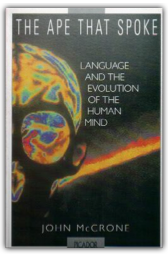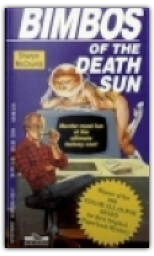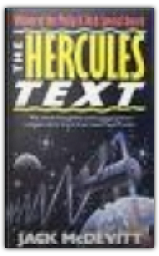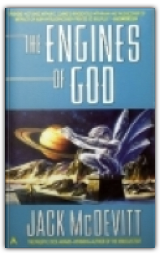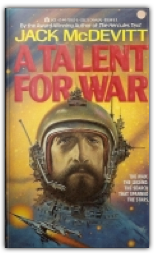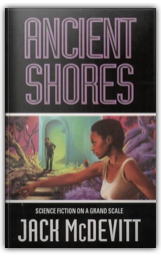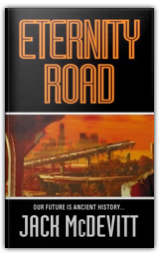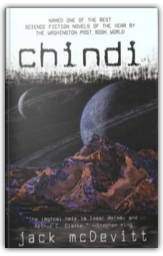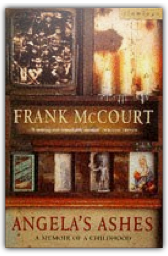 Angela's Ashes
Frank McCourt
Angela's Ashes
Frank McCourt
"Worse than the ordinary miserable childhood is the miserable Irish childhood," writes Frank McCourt in Angela's Ashes. "Worse yet is the miserable Irish Catholic childhood." Welcome, then, to the pinnacle of the miserable Irish Catholic childhood. Born in Brooklyn in 1930 to recent Irish immigrants Malachy and Angela McCourt, Frank grew up in Limerick after his parents returned to Ireland because of poor prospects in America. It turns out that prospects weren't so great back in the old country either—not with Malachy for a father. A chronically unemployed and nearly unemployable alcoholic, he appears to be the model on which many of our more insulting clichés about drunken Irish manhood are based. Mix in abject poverty, and frequent death and illness, and you have all the makings of a truly difficult early life. Fortunately, in McCourt's able hands it also has all the makings of a compelling memoir. 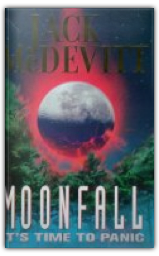 Moonfall
Jack McDevitt
Moonfall
Jack McDevitt
Gigantic meteor impacts have been a familiar SF cliché for decades. Jack McDevitt (whose first SF novel appeared in 1986) rings the changes with a two-stage disaster. A sun-grazing comet from deep space becomes visible only during the 2024 eclipse: it's a planet-killer, too big and fast for interception, and impact is in just five days. The twist is that it's going to hit the Moon. Lashings of drama follow as our lunar base—just opened by the US Vice-President, who's still there—is desperately evacuated by a Dunkirk flotilla of moonbuses, spaceplanes and a prototype Mars ship. At last the incoming monster, 180 km across, smashes into the Moon: as though this were a violent first break in snooker, random fragments fly everywhere. With grim plausibility, McDevitt shows the US government initially spin-doctoring the problem as nothing much to worry about. Then the sky begins to fall ... 37 chunks of Moon spawning fireballs and floods, and a massive 38th that threatens global extinction. The last-ditch effort to tackle this—not using nukes—attracts a sabotage strike from US militia loons who reckon it's all a government plot. McDevitt mercilessly cranks up the tension, and the pages turn faster and faster. A highly competent technothriller. —David Langford 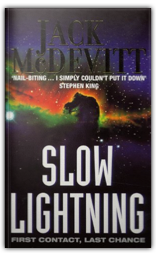 Slow Lightning
Jack McDevitt
Slow Lightning
Jack McDevitt
Jack McDevitt's debut novel was The Hercules Text in 1986; since then he has published further thoughtful science fiction and the disaster blockbuster Moonfall 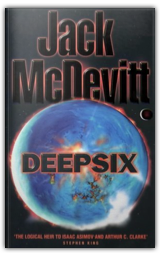 Deepsix
Jack McDevitt
Deepsix
Jack McDevitt
Deepsix is concerned with the motivating force that drives all scientists—the quest for truth, for expanding the limits of human knowledge. How much are we willing to risk for that moment of discovery, of knowing what no other soul yet knows? Our time? Our reputations? Our careers? Our lives? |
 Made with Delicious Library
Made with Delicious Library
London, State zipflap congrotus delicious library Scott, Mike



